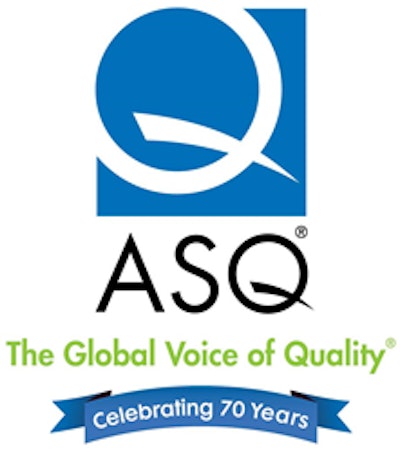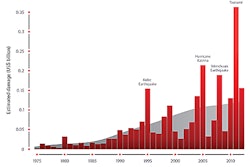
While 83 percent of manufacturers have been adversely affected in the past by suppliers' inability to meet their needs, only one-third anticipate a shortage of parts or services in 2017, according to the American Society for Quality (ASQ) 2017 Manufacturing Outlook Survey.
Survey results show 66 percent of manufacturers expecting a problem with suppliers are working closely with providers to resolve issues, while 35 percent are working with their suppliers' competitor. Some manufacturers are stockpiling parts, while others are expanding operations to create the necessary parts themselves.
"Supply chain plays a critical role in manufacturing and companies simply can't risk being without the necessary material they need to be successful," said ASQ Chair Pat La Londe. "Companies need to carefully consider multiple options when faced with a shortage of materials or suppliers that can't meet their needs."
More than 1,125 manufacturing professionals from around the world responded to ASQ's 2017 Manufacturing Outlook Survey, which was conducted online in November and December. Respondents to the survey represent a multitude of industries, including aerospace, automotive, food, medical device and more.
In addition to questions about their organization's supply chain, the annual Manufacturing Outlook Survey also questioned respondents about their financial outlook for 2017.
Nearly 72 percent of the respondents said they expect an increase in their company's revenue in 2017. And while 69 percent of respondents said their company's revenue increased in 2016, only 65 percent anticipated growth in last year's Manufacturing Outlook Survey.
Furthermore, 74 percent of respondents said they expect salary increases in 2017, up from 61 percent in the 2016 survey, and 46 percent said they expect their company to increase staff, compared to 37 percent last year.
But while respondents are confident their companies will increase revenue, the economy as a whole continues to be the top hurdle facing organizations. According to the survey, more than 36 percent of respondents cite the economy as their greatest hurdle in 2017, down from 40 percent of respondents in last year's survey.
Others—just more than 30 percent—said the shortage of skilled workers will be their greatest challenge, followed by regulatory issues at 15 percent. Respondents identified uncertainly about the government direction with a new president, global trade issues and decreased demand for their products as other areas of concern.
Only 7 percent said a shortage of necessary parts is their greatest obstacle. In fact, respondents are satisfied with the quality and availability of materials, according to the results, which show 68 percent of respondents said quality is the most important factor when considering suppliers.
And when suppliers can't provide the necessary materials, respondents said "don't put all your eggs in one basket." Openly communicate with suppliers to determine any potential risks and have back-up plans—and back-up suppliers—to alleviate supply chain disruptions. According to the survey, 59 percent of respondents said their organization has a formal process to address supply chain risk, whereas 28 percent don't and 13 percent aren't sure.














